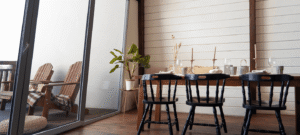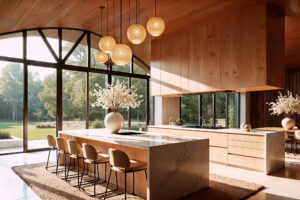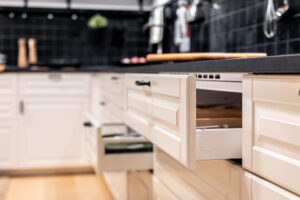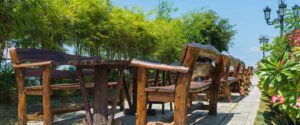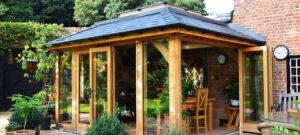When it comes to adding structure, shade, and architectural beauty to your garden, few choices are as enduring as the pergola. For UK homeowners, deciding between an oak pergola UK or a more conventional timber option is a key consideration that involves aesthetics, durability, and long-term value. Whether you envision your outdoor space graced by the warm tones and impressive resilience of oak, or you’re weighing the versatility and budget-friendliness of other woods, this guide will help you understand which option best suits your garden and lifestyle.
The Unique Appeal of Oak Pergolas
Oak pergola UK constructions have been a hallmark of British garden design for centuries. European Green Oak, in particular, offers an exceptional blend of strength, lasting beauty, and natural resistance to weather and pests. Its rich straw colour and grain bring a timeless character that matures into a stately silvery-grey over time, enhancing the elegance of your outdoor space.
What really distinguishes bespoke oak pergolas is their longevity. Oak’s density and stability mean it copes admirably with the UK’s shifting climate, standing firm through rain, wind, and sun with little need for chemical treatment or ongoing maintenance. For those looking to frame patios, walkways, or outdoor seating areas with a structure that endures, oak is a premium choice.
Exploring Timber Pergolas: The Alternatives
Timber pergolas are crafted from a range of other woods, with Western Red Cedar, Douglas Fir, and pressure-treated softwoods being the most common in the UK. Cedar, with its fine reddish tones and subtle scent, offers both natural beauty and excellent resistance to rot and decay. Douglas Fir is renowned for its strength and grain, adapting well to various architectural styles.
Pressure-treated softwoods are typically more affordable and versatile, often available in a range of finishes and colours. While these timbers can be robust when properly treated, they will require more frequent maintenance to avoid weathering, insect damage, or warping. Timber pergolas are popular with homeowners seeking flexibility in design and upfront savings.
Comparing Strength and Durability
Between an oak pergola UK and typical timber options, oak stands out for its superior structural strength. Bespoke oak pergolas can span larger areas and bear heavier loads, supporting climbing plants or even integrating features like lighting and outdoor curtains without compromise.
Softwoods can be suitable for smaller, less demanding structures, but may suffer degradation from heavy use or harsh weather. Both planed oak and Douglas fir reveal a beautiful grain and can be machined for smooth assembly, but oak’s stability means it resists warping and twisting much better over the years.
Maintenance and Ageing
Another major factor to consider is maintenance. Bespoke oak pergolas are celebrated for being largely maintenance free, aside from occasional preservative treatments that can enhance the wood’s warm tones or encourage the graceful silvering prized by many gardeners. Oak’s natural tannins provide continued resistance to pests and rot.
Timber pergolas, especially those made of softwoods, require yearly treatment to prevent rot, warping, or insect damage. Cedar and Douglas Fir fare better, but all timber pergolas benefit from periodic cleaning, staining, and sealing. Over time, oak tends to age elegantly, while other woods may need more effort to keep them looking their best.
Costs and Value
The price difference between an oak pergola UK and a conventional timber pergola is often a deciding factor. Oak is generally more expensive, reflecting its durability, craftsmanship, and natural beauty. However, this is mitigated by its longevity and ability to enhance property value.
Timber pergolas, particularly those made with pressure-treated softwood, are much more budget-friendly in the short term. If you need an affordable solution for a rental property or a quick garden improvement, timber can be appealing.
But it bears repeating that bespoke oak pergolas, crafted to order, often using traditional joinery and planed for a refined finish, become cherished features that last decades. The initial investment pays off through reduced maintenance and enduring style.
Customisation and Design Flexibility
Both oak and timber allow for bespoke design, but there are key differences. Oak’s natural strength supports larger spans and open, airy styles without additional reinforcement. Bespoke oak pergolas can be tailored with decorative details and integrated seating, while also accommodating modern needs like electrical outlets or concealed lighting.
Timber pergolas offer a wider palette of colours and are generally easier to paint or stain. Their design might be limited by the wood’s strength, meaning larger or more intricate projects may require hidden steel supports or more frequent upkeep.
Environmental Considerations
Sustainability is a growing concern for UK homeowners. Oak, when responsibly sourced, is a renewable and eco-friendly material, often harvested from well-managed European forests. Its longevity also means less replacement and waste over time.
Other timbers such as Western Red Cedar and Douglas Fir are similarly renewable but may be imported from distant locations. Pressure-treated softwoods involve additional chemical processing, raising questions about environmental impact.
By selecting bespoke oak pergolas crafted from locally sourced or certified timber, you’re making an investment that both supports your garden and protects the planet.
Style and Aesthetic Impact
Oak pergolas strike a balance between traditional elegance and contemporary flair. Their substantial posts and beautiful grain offer unmatched statement and architectural harmony. Bespoke oak pergolas can be integrated into classical garden settings or used to frame modern patios for a dramatic effect.
Timber pergolas are lighter, more versatile, and easy to tailor to evolving tastes. Their range of finishes and ability to be painted allow homeowners to experiment with bold colours or minimalist styles, making them ideal for trend-driven landscapes.
Final Thoughts
Choosing between an oak pergola UK and a timber pergola ultimately comes down to your priorities. Oak represents permanence, luxury, and authentic British craftsmanship, resulting in bespoke oak pergolas that transform gardens into lasting sanctuaries. Timber pergolas offer flexibility and affordability, with options for almost any outdoor space or budget.
For those seeking a higher-end, low-maintenance addition that elevates their home’s value, oak is often the better long-term investment. For quick updates or custom styles at a lower price, timber models are tough to beat. Whichever you choose, pergolas remain a beloved feature of the UK landscape, enhancing outdoor living and creating memories for years to come.

